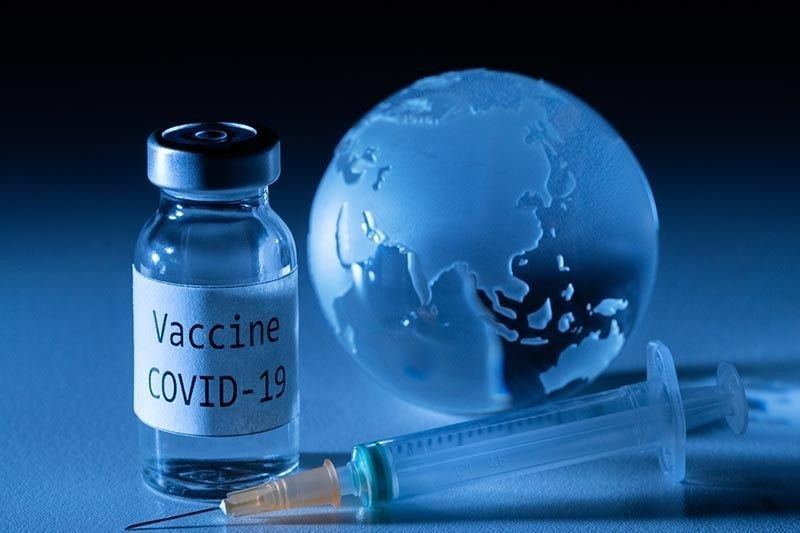FDA: Emergency approval for COVID-19 vaccine possible in January

MANILA, Philippines — The country’s Food and Drug Administration might give emergency authorization to leading coronavirus vaccine candidates in January at the earliest, its chief said Thursday.
This, if drugmakers developing COVID-19 vaccines apply for an emergency use authorization (EUA) with the local FDA anytime soon.
“Pag nag-apply sila sa atin maaaring first few weeks of January, meron na tayong maibigay na EUA at mapaaga nang kaunti, magkaroon ng chance na mga March, magkaroon na ng bakuna dito sa Pilipinas,” FDA Director General Eric Domingo said in a Palace briefing.
(If they submit their application, it’s possible that we can already issue EUA by the first few weeks of January. Perhaps, there may already be a vaccine here in the Philippines by March.)
President Rodrigo Duterte signed Tuesday an executive order giving the FDA the power to issue EUA for COVID-19 vaccines and treatments, shortening the process of regulatory approval from the usual six months to as fast as 21 days.
EUA applicants in the Philippines should have an equivalent emergency authorization from countries where they were developed, counterpart regulatory body or the World Health Organization.
If applicants present all the necessary documents, the review on the vaccine's safety and efficacy will be completed within 21 to 28 days.
Process
In a separate briefing hosted by the Department of Health, Domingo said EUA applications will be submitted to the local FDA.
The agency’s Center for Drugs Regulation and Research will assess the quality of the vaccine candidate, while an expert panel will conduct a review on safety and efficacy data of COVID-19 vaccines or drugs.
Domingo also said the FDA, along with DOH’s Epidemiology Bureau, will set up a “very strong” post authorization monitoring to track the effects of the vaccine or drug on the public once it is administered.
“We’d like to assure the public that we’ll take it very seriously, that we’ll make sure the benefits will outweigh the risks more than anything before we even consider giving EUA to any vaccine and of course, it will come with a lot of condiitons to make sure that we safeguard the safety of the public,” Domingo said.
China is allowing the emergency use of vaccine candidates from Sinovac and Sinopharm. The United Kingdom gave emergency authorization to Pfizer’s coronavirus vaccine, leaping ahead of the United States. Moderna, another vaccine frontrunner, also applied for EUA from the US FDA.
Domingo said these four vaccine developers along with AstraZeneca might be the first to request emergency use in the Philippines.
If granted, an emergency authorization will only be valid within the duration of public health emergency due to COVID-19. The FDA may also revisit or revoke the EUA “to protect the general public health and safety.”
With over 430,000 COVID-19 cases and 8,000 deaths, the Philippines is scrambling to obtain vaccine supplies to help end one of Southeast Asia’s worst outbreaks.
The country, through the efforts of around 30 private companies, has so far secured 2.6 million doses of COVID-19 vaccine developed by Astrazeneca. The British-Swedish developer said the average efficacy of its vaccine candidate was 70%. — with report from Xave Gregorio
Pharma giants Sanofi and GSK said on July 29, 2020, that they have agreed to supply Britain with up to 60 million doses of a potential COVID-19 vaccine. The agreement covers a vaccine candidate developed by France's Sanofi in partnership with the UK's GSK and is subject to a "final contract."
This thread collects some of the major developments in the search for a vaccine to ease the new coronavirus pandemic. (Main photo by AFP/Joel Saget)
As negotiations towards a new pandemic treaty pick up pace, observers warn of watered-down efforts to ensure equitable access to the medical products needed to battle future Covid-like threats.
Shaken by the pandemic, the World Health Organization's 194 member states are negotiating an international accord aimed at ensuring countries are better equipped to deal with the next catastrophe, or even prevent it altogether.
The process is still in the early stages, with the aim of reaching an agreement by May 2024.
But critics warn that revisions being made to the preliminary negotiating text are weakening the language -- notably in a key area aimed at preventing the rampant inequity seen in access to vaccines and other medical products during the Covid pandemic.
"I think it is a real step backwards," Suerie Moon, co-director of the Global Health Centre at the Geneva Graduate Institute, told AFP. — AFP
Africa's first mRNA vaccine hub is ceremonially launched on Thursday to acclaim from the UN's global health chief, who hailed it as a historic shift to help poor countries gain access to life-saving jabs.
The facility was set up in the South African city of Cape Town in 2021 on the back of the success of revolutionary anti-Covid vaccines introduced by Pfizer/BioNTech and Moderna.
"This precious project... will bring a paradigm shift in addressing the serious problem we faced, the equity problem, during the pandemic, so (that) it's not repeated again," World Health Organization (WHO) head Tedros Adhanom Ghebreyesus tells a media briefing to mark the inauguration. — AFP
China has approved its first locally developed messenger RNA (mRNA) vaccine against Covid-19, its manufacturer said Wednesday, months after the relaxation of strict Covid-zero regulations sparked a surge in cases.
The vaccine, developed by CSPC Pharmaceutical Group Ltd, has been approved for "emergency use" by Beijing's health regulator, the company said in a statement.
It showed high efficacy in a trial in which it was used as a booster shot for people who have been given other types of vaccines, the company added, without offering further details. — AFP
COVID-19 vaccine maker Novavax raises doubts about its ability to continue its business, announcing plans to cut spending after struggles in rolling out its coronavirus jab.
Shares of Novavax plummeted 25 percent in extended trading, after the company reported fourth-quarter earnings that missed analyst estimates.
While the firm should have enough money to fund operations, the situation is "subject to significant uncertainty," it says in a statement. — AFP
The protection against Covid-19 from being previously infected lasts at least as long as that offered by vaccination, one of the largest studies conducted on the subject says.
Ten months after getting Covid, people still had an 88% lower risk of reinfection, hospitalisation and death, according to the study published in the Lancet journal.
That makes this natural immunity "at least as durable, if not more so" than two doses of Pfizer or Moderna's vaccines, the study says.
The authors nevertheless emphasized that their findings should not discourage vaccination, which remains the safest way to get immunity. — AFP
- Latest
- Trending































